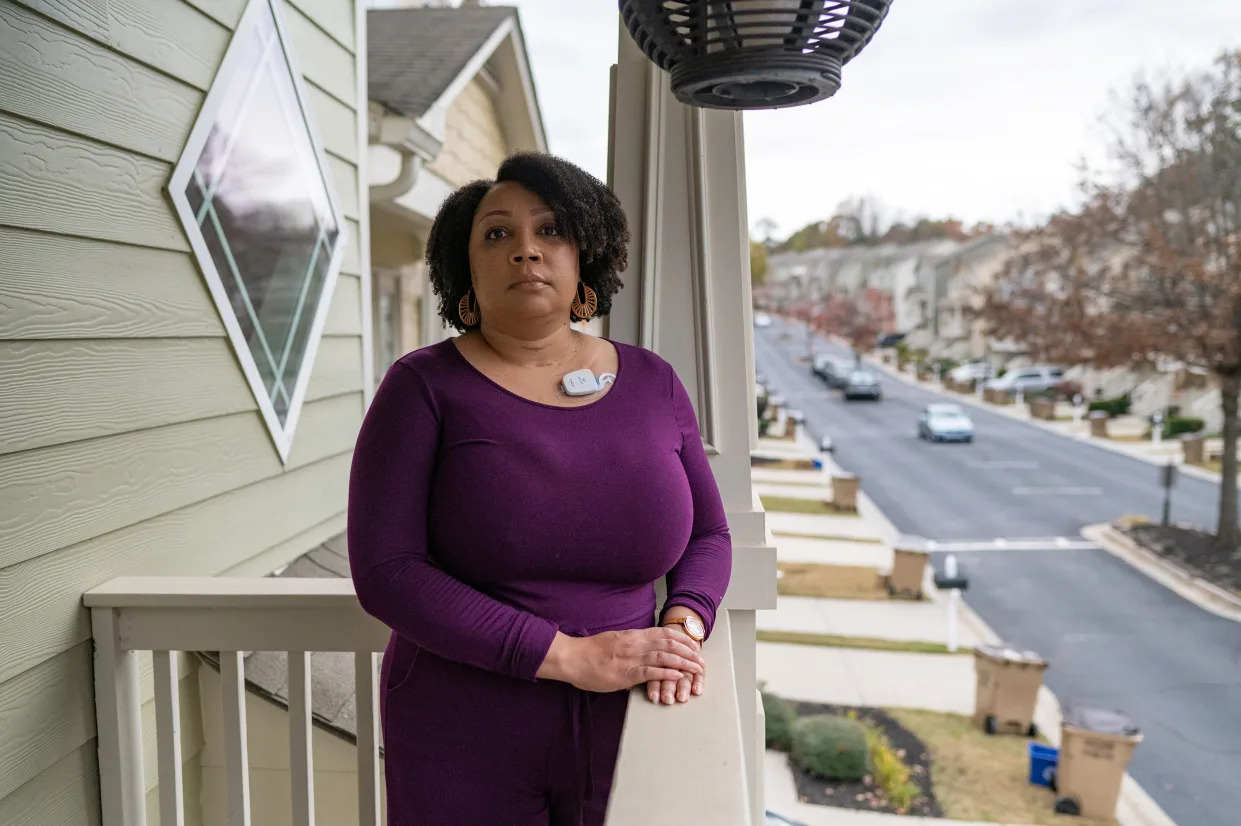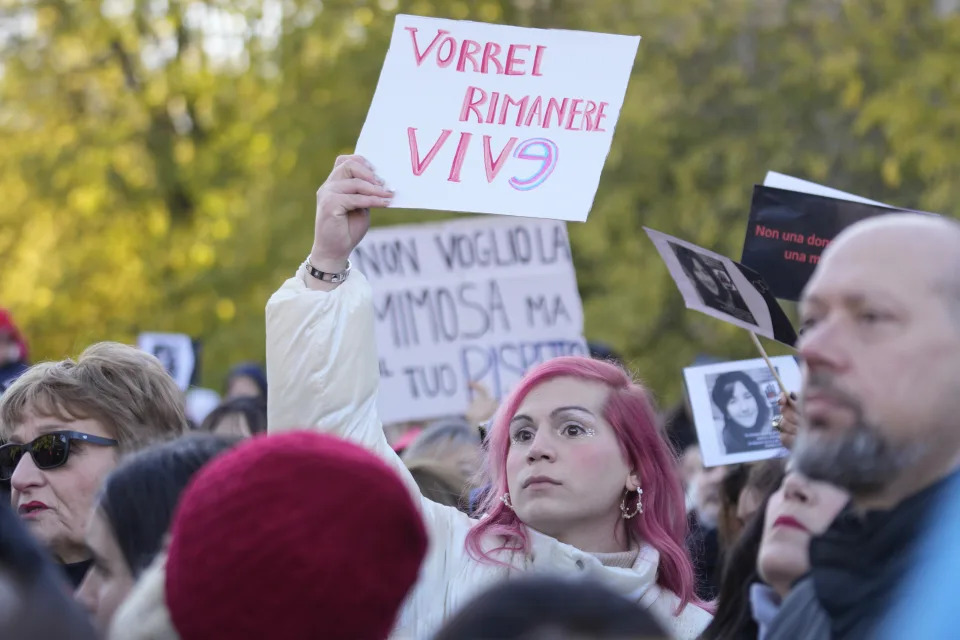BBC News
‘Long Covid triggered our MCAS, but doctors didn’t believe us’
Liz Jackson – BBC News – November 26, 2023
People with long Covid feel “forgotten, unheard, disbelieved, isolated”, barrister Anthony Metzer KC told the Covid-19 Inquiry last month on behalf of advocacy groups for people with the condition.
A growing number of people who have secondary illnesses thought to be triggered by long Covid – including an immune disorder called mast cell activation syndrome (MCAS) – say this feeling is especially acute.
I spoke to two young Londoners who, like me, have been diagnosed with long Covid and now MCAS and are starting to feel better, but faced poor treatment by doctors.
In George Cooper’s case, he says one was “so unreceptive to the point where they were actually angry”, and for Elle Gorman, they questioned whether she was “not eating on purpose”.
Warning: This article contains details some may find distressing, including illness and mention of suicide.
The National Institute for Health and Care Excellence defines long Covid, or post-Covid syndrome, as symptoms during or after infection that continue for more than 12 weeks and are not explained by an alternative diagnosis.
The BMJ says MCAS “is characterised by recurrent sudden-onset episodes of severe systemic symptoms associated with the release of mast cell mediators“, which can include histamine.
George, 27, from Putney in south-west London, was recovering from glandular fever when he became “really ill” in March 2020 with suspected Covid.
Although there was no testing at all during this time, antibody tests in June of 2020 showed he had been exposed to the virus and, after experiencing months of lingering symptoms, he was diagnosed with long Covid.
‘I lost almost half my body weight’
The keen runner and rugby player said he began getting food allergies, swollen lymph nodes, palpitations and was fainting, and had “massive stomach pain to the point where I was like, what is this, am I dying?”.
More than two years later George was seen by an NHS long Covid clinic and was told he might have MCAS.
But when he took the news to his GP “he effectively said ‘you’ve got ME (myalgic encephalomyelitis) and you’ll have it for life’,” George explained.
A different doctor advised him to pay for a private appointment, where a consultant also suspected MCAS and prescribed antihistamines and ordered biopsies – but George was unknowingly reacting to bulking ingredients in the medicine and was still getting sicker.
He said he developed non-viral hepatitis and saw another GP who looked at his diagnosis of suspected MCAS and was “so unreceptive to the point where they were actually angry”.
“I’d gone from being 87kg (13st 10lbs) and playing rugby to 47kg (7st 6lbs) and I was near to not being around, I think, because I was eating food that was making me sick, and I was in so much pain,” he continued.
George reached out for help again when he started having thoughts about taking his own life.
“I was so low. I think it had taken everything from me, and I didn’t trust anything around me or anyone, including myself,” George said.
A different doctor suggested he should go to an eating disorders clinic and George said he agreed because he felt most doctors thought he was “just mentally ill” and his MCAS was “in his head”.
At the clinic, George struggled. If he didn’t eat he was told to drink liquid nutrition drinks which made him vomit, but five days into his stay the results of his biopsy from months earlier came through.
He had MCAS.
He said the news “just made me whole”, adding: “I nearly wasn’t here.”
“When I was discharged the psychologist said she thought I never had an eating disorder in the first place and I shouldn’t have been there,” he said.
George is now on MCAS medication with different ingredients and is recovering, but said it had been “difficult not to get angry”.
“I’m more wary around doctors now,” he said. “I don’t think I’ll ever actually fully process things from that time, and PTSD has been discussed.
“It’s OK to say ‘I don’t understand’. But to say ‘you’re wrong, that’s not happening’, is a totally different kettle of fish.”
Why isn’t the health system helping?

There are no NICE guidelines for MCAS, which would allow NHS staff to recognise and treat it – even though the NHS recognises other forms of mast cell disease such as mastocytosis.
While the NHS doesn’t yet recognise MCAS, medical bodies in other countries have begun to, among them the American Academy of Allergy, Asthma and Immunology, and global research into its links to long Covid is growing.
Joy Mason from UK charity Mast Cell Action said MCAS had “loose diagnostic criteria” and no national guidelines, making it “very complex to discuss in a short appointment”.
Researchers are looking into links between long Covid and other illnesses, and are examining whether treatment with medicines like antihistamines could be effective.
Prof Danny Altmann from Imperial College London is running one of Europe’s largest immunological studies into long Covid, and he and co-authors published a review of the immunology of long Covid, which noted some investigations “highlighted features of the long Covid immune response that are reminiscent of mast-cell activation”.
Despite this, the immunologist said there were no “rock-solid studies” on MCAS yet, though he pointed out “the bar [is] quite high” for research to get off the ground.
“They might have shifted their immune profile to be more allergic and one of the things that speaks to that is the only properly powered big randomised controlled drug trial – the Stimulate ICP trial at University College. One of the four arms is using two different histamines as a trial to see in a properly controlled environment whether that works,” he said.
Prof Altmann stressed that relying on private prescribers was only a temporary solution and researchers, drug companies and health authorities needed to “bang heads together and say ‘these are the steps that would be needed to get large-scale long Covid clinical trials in a way that satisfies the authorities, these are the drugs… these are the cohort sizes’.”
- Long Covid: What’s changed, and what we know now
- Long Covid: Three years and no magic bullet
- Scans reveal new clues to long Covid symptoms
I approached NHS England to ask whether it recognised MCAS, or had plans to request a NICE review of the condition, but after incorrectly signposting me to NHS information about mastocytosis, the press office declined to answer any questions about MCAS.
An NHS spokesperson said: “Long Covid remains a relatively new condition and research is under way to continue to build our understanding of how best to diagnose and treat people affected by the condition.”
The spokesperson advised those concerned about ongoing symptoms after Covid-19 to “see their GP team, who can rule out any other possible underlying causes for symptoms”.
“If appropriate, they will also be able to refer to one of over 100 specialist long Covid clinics for further support and treatment from a wide range of health professionals that can address both the physical and psychological aspects of living with long Covid.”
If people suspect they have symptoms that correlate with possible MCAS, they should speak to their doctor.















